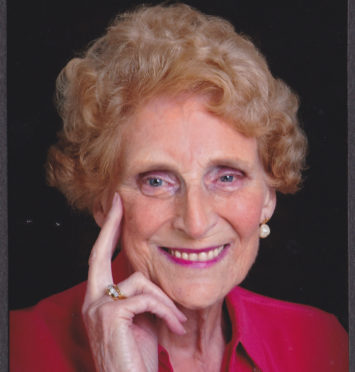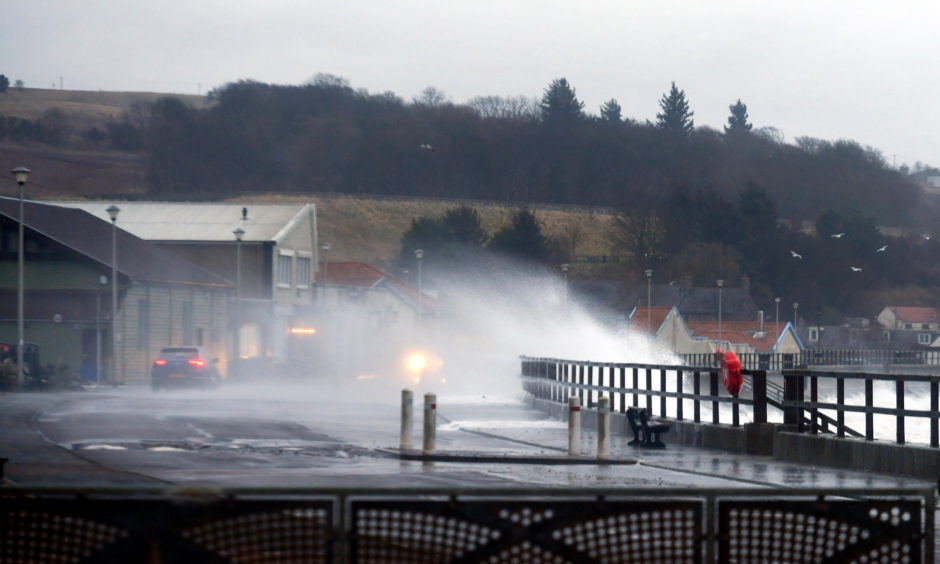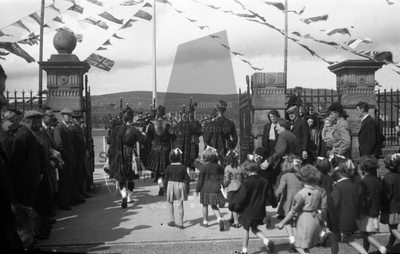Winnie Sinclair was among the many north-east youngsters who experienced contrasting emotions during the VE Day celebrations.
On a positive note, the Stonehaven woman could look forward to a precious reunion with her husband-to-be, Bob, as the conflict in Europe reached its end in May 1945.
Yet she never forgot about the loss of her two brothers, Gordon and Charles Beddie, who had both sacrificed their lives as the hostilities raged across the continent.
Captain Gordon Beddie, a career soldier in the Royal Engineers, was “worshipped by his men” but was killed fighting his way inland a few days after landing on Sword Beach during D-Day.
He had been at home shortly before his death, but recognising that secrecy was paramount, yet grasping the enormity of the operation on the Normandy beaches, had given the impression to his family he would not be coming home.
Charles Beddie was a telegraphist in the submarine HMS Umpire which sank off the Norfolk coast after a collision.
Some of the crew were able to get out using rescue hatches, but the young Scot passed his escape route on to his friend who was married with children – and his friend survived.
As Winnie’s son, Gordon, said this week, they were “two ordinary Stonehaven lads who, like so many of that generation, showed extreme courage when called upon”.
For Miss Beddie, VE Day brought hope that her beau, Bob, would soon return from his Navy service and provided a sense of joy that the war was over, but there was also a feeling of emptiness from the memory of her lost boys.
Happily, Bob did come home, the couple were married and brought up three fine lads, one of whom, Ally, served on HMS Avenger during the Falklands War.
Great sense of humour
During the heat of battle the crew successfully fended off an incoming Exocet missile and the ship survived to fight another day.
Their son, Gordon, recounted his experience growing up in post-war Scotland and the challenges it presented.
He said: “We were always hard up in those early years, but I remember we had an extremely happy childhood.
“Mum especially had a great sense of humour and in any get-together we would catch each other’s eye at times and turn away suppressed smiles and laughs.
“We moved around the north-east because of dad’s work as a policeman and that took us to different places, including Cove, Stonehaven, Bucksburn and Fraserburgh.
“As well as bringing up three boys, mum began studying and achieved Highers once we were old enough.
“She worked at a doctor’s surgery in Fraserburgh and then at Aberdeen University as faculty secretary.
“In retirement, she moved back to her ‘roots’ in Stonehaven and she had friends there throughout her life.
“She was almost obsessed by the benefits of education and diligence.
“She made sure that we would make the most of the opportunities her generation could not have.
“She travelled a lot herself and wanted us to ‘spread our wings’ as well.
“I think she slightly regretted that in her later years as I spent many years in the United States and then England.
“I have a brother in Plymouth and the other in the Middle East.
“We never spoke at length about her lost brothers, but she always spoke longingly and admiringly of them and it was obvious that when they were all together, mum had shared some very good times with them.
“In later life, I took her to the Normandy cemetery where her brother Gordon is buried.
“I am named after him.”
Sacrifice was never forgotten
Eventually, Mrs Sinclair retired, first to Victoria Street and then Turner’s Court in Stonehaven and died in 2015, aged 85, but she never allowed her brothers’ sacrifice to be forgotten.
She also endured her property being flooded in 2012 during the torrential rain which swept the region and later displayed the stiff upper lip which was a trait of her generation.
As her son recalled: “The way she survived the flood really demonstrated her strength and resilience. The house was written off, and she was literally pulled out the bedroom window by firemen.
“She was well-insured, so it was all recovered, but we can only guess at the trauma she underwent. And it was over a year before she was back home in Turner’s Court.”


